Anna Milewska
Nascimento : 1931-02-21, Warsaw, Poland

Unbearable heat. A young boy is doing to his friend unusual favor - pretended to be him, visited his grandmother who has senile. A woman takes him for a walk to a place that evokes memories and she tell him about the biggest mystery of her life.

Olga
Bartłomiej, community elder and orator, must choose an appropriate successor, but finds difficulty in the aftermath of a local girl's tragic hit-and-run death. A community's pain reverberates through fractured relationships and the burden of funereal responsibility.

kierowniczka domu opieki
Rose, an older woman living in Paris was born in Poland as a daughter of an aristocratic family. Her family house is now an impoverished home for the elderly.

matka Gosi

Cecylia, babcia Irenki

siostra
Bronek Pekosinski lives in Zamosc, Poland. He is probably 83 years old. He has no family and does not really know who he is. Everything about his life is fictitious: symbolic is the date of birth - the day World War II broke out, as well as his surname - after PKOS, an abbreviation of a charitable institution, and the place of birth - the Nazi concentration camp, from where his mother threw him over a barbed wire fence. Even his friends and guardians turned out to be false. Only his loneliness and his hump seem to be authentic. Two great powers have vied for young Bronek's soul: Roman-Catholic church and a totalitarian state. He fell into alcoholism. Partially paralyzed as the effect of cerebral hemorrhage, he is fired with an ambition of acquiring a mastery in a game of chess.
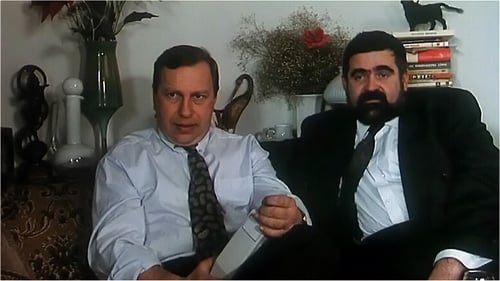
pani, która nie miała na grzybową
A parliament member's sixteen year old daughter Agatha falls in love and runs away with a convicted young tramp, while her father uses his friends in the government and police to brutally break their happiness.

żona profesora Pytla
The film is a continuation of the 1984 film I died to live. Leopold Wójcik, faking his own death, returns to the underground. Unlike the previous part, the fate of the heroes is a fiction - a variant of events that could have taken place. The film had a sequel: Born for the Third Time (1989).

When the hot-dog vendor Kaj from the small town of Skælskør in Denmark turns 40, his friends take him on a trip to Poland, to a long party with cheap liquor and emigration eager polish ladies. It will go merrily, but it gets serious for Kaj as he meets a girl who mistakes him for a wealthy Toyota dealer she has exchanged letters with.
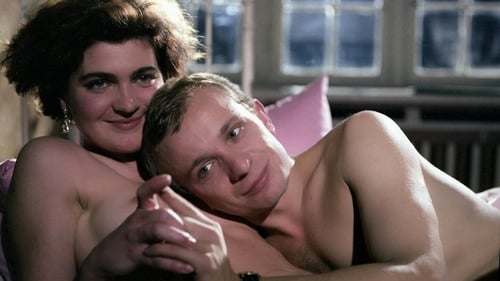
Michal's mother

Hulanicki's wife
An Uruguayan diplomat brings his new wife with him on a business trip to Poland in the summer immediately preceding the outbreak of World War II.

Zawadowa, matka Pawła
Following the emotions associated with entrance examinations to the faculty of pedagogy, Catherine Solska returns to his native village. And here she will surprise - the family without their knowledge to begin preparations for engagement with a rich neighbor Kolasa. Girl falls into despair, tries to oppose the decision of the parents, but is closed in his room. On visits to her fiance and flees out the window calling mail to the university. Receives misleading information and is convinced that was not accepted to college. Resigned returns home and agrees to the wedding. Meanwhile, on the eve of the wedding the postman brings the notice of acceptance to the university.

Judge
The life of a grumpy 40-year-old man living with his wife in a high-rise block. Every day is like the other - quarrel over dinner, garbage, neighbours, elevators, lost socks. He hates everybody, especially his wife. Not even sexual fantasies are an escape from the hell, he imposes on himself.

A young, idealistic poet, turns his back on civilization and goes to small, backwood village, rents a bed in the house of an old woman, and decides to make his living as a lumberjack. Soon he realizes that the world around him is far from perfect.

Emilia Chwastowska, matka Lidki

Pytel's wife
Warsaw 1941. Gestapo captures a Home Army soldier who knows the code needed to read the list of agents working in Reich. Tortured Wójcik asks the doctors for poison.
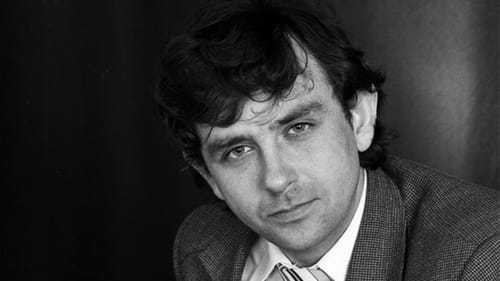
The year 1943. The Second World War is on. A group of partisans, which includes, among others, the young poet Gonczar, his friend Włodek and Zosia, are ordered to blow up a railway bridge during a military transport crossing. The task is completed, but with great losses.
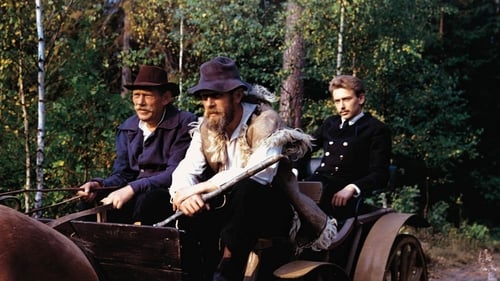
Pani Rajecka, matka Michałaani Rajecka, matka Michała
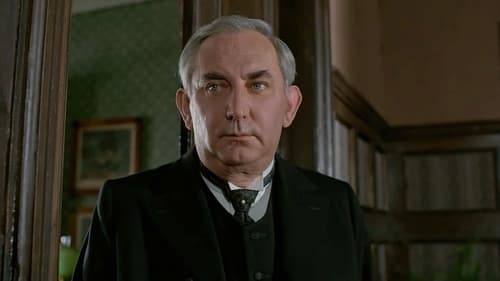
Weronika, żona profesora
A well-known professor of medicine finding himself at the threshold of autumn of his life, takes stock of his achievements and experiences. "In the end it ends with what has been known for a long time: that conscious life without a fixed worldview is not life, but torment, horror. - wrote Anton Chekhov in one of his letters summarizing "An Uninteresting Story". The protagonist, Professor Nikolai Stepanovich, is a character characteristic of Chekhov's entire oeuvre - a Russian intellectual from the late nineteenth century, depressed by boredom and a sense of his own uselessness and the meaninglessness of his existence.
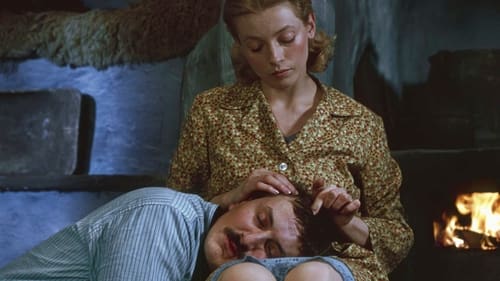
Matka Boska w śnie Kaziuka
Kaziuk, a stubborn peasant and his pregnant wife live in a backwood village, unaffected by the civilization. The village is once visited by a couple of wanderers, and strange things start to happen afterward. A new schoolteacher is sent to the area. She stirs erotic fantasies in Kaziuk. In a stir of frustration Kaziuk cuts down a family tree - a sacrilegious act in the eyes of his family. Going a step further and using a scythe for cutting the rye instead of a sickle brings the whole village against him.

This heroic story follows the life of Karol Wojtyla, a Polish Roman catholic who ascends the throne of St. Peter as Pope John Paul II. As a young boy, Karol is a bright and talented student. Archbishop Sapieha recognizes the very special, moving qualities Karol possesses and encourages him to consider the priesthood. Although determined to study Polish literature, Karol turns to the church; he is ordained and studies in Italy, France, and Belgium. Torn by fear and repression in post-Stalin Eastern Europe, Karol becomes a poisonous thorn in the communists' side. His deer reverence and commitment return him to Poland as Pope John Paul II.

Kosmowska, komunistyczna posłanka na Sejm RP
The action-packed historical and revolutionary film about the struggle of the VCHK with the international conspiracy against the Soviet government in Russia in the beginning 20s. On the activities of Dzerzhinsky, chairman of the VCHK, People's Commissar of Internal Affairs and at the same time Commissar of Railways. About the work on resuscitation of a collapsed industry, army, railways, to which the Iron Felix attracts (some by threats, some by persuasion) pre-revolutionary intellectuals.

członkini rządu lubelskiego (nie występuje w napisach)
A two-part historical film covering the years of the First World War and the post-war period up to 1919 - until the signing of the peace treaty in Versailles near Paris. An attempt to show the great and complicated process of regaining an independent existence by a nation within its own state. The screen shows characters from history textbooks: Józef Piłsudski, Ignacy Paderewski, Roman Dmowski, Wojciech Korfanty as well as representatives of the world political scene, incl. David Lloyd George, Woodrow Wilson, Georges Clemenceau, Vladimir Lenin and others.

Mademoiselle de Lafontaine
Polish adaptation of the J. Sheridan LeFanu vampire novella.
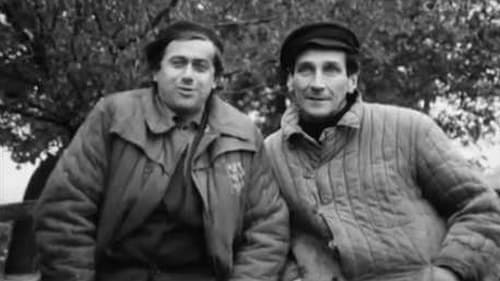
Helena, żona Mietka
A ruminative, understated drama on the nature of overwork versus an "unachieving" life away from the city, Pelnia examines the experience of one man. After leaving his high-pressured existence as a successful architect, the newly resolved dropout goes to live in a small community of cabins and summer homes in a lake-filled region north of Warsaw. His interactions with the villagers, including a drunkard and other eccentrics, provide an informative background for what happens next. The ex-architect's wife is a professional singer who has not abandoned the city or her life -- and she soon arrives to spend some time with her very changed husband.
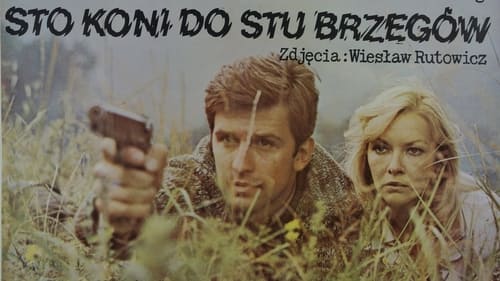
Zofia
World War II. Lieutenant Bogdan Mayer is tasked with delivering a sample of valuable metal alloy from Warsaw to London.

Emilia Chwastowska
The love story of Stanisław Połaniecki and the beautiful Marynia Pławicka, set in the scenery of manor houses and Warsaw from the end of the 19th century.

Maria, żona Stefana

Ignacja Piotrowska

dentystka, "racjonalna" kandydatka

Giuseppa Falcone, żona Matea
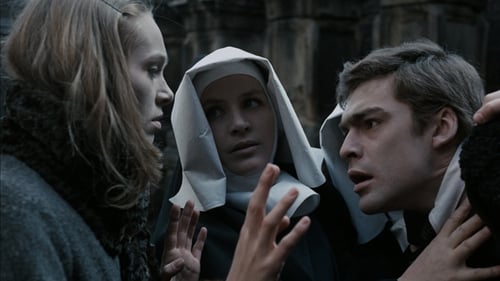
Sister Klara
Set during the Nazi occupation of Poland, in which Michal witnesses the murder of his mother, wife and child. He is hurled into a life that literally is not his own; a surreal world littered with trapdoors, doppelgängers and wormholes. It also tells the true untold story of a Nazi vaccine laboratory where Jews and members of the resistance were “employed” as feeders for parasites infected with typhus.
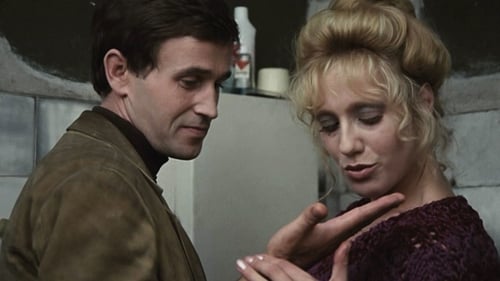
This intense chamber drama centers on an ambitious young industrial designer who is summoned home to help his father and sister. Both the aristocratic family he fled in shame and scorn, and their dilapidated country estate, bathed in an oppressively nostalgic light, prove ultimately inescapable.

Olga
A man who is socially inept and out of touch with the world lives with his sister in a small farmhouse. The overly sensitive man lives off his hard-working sibling, taking odd jobs as he gets them to secure his meager earnings. When he brings home a woodcutter from the forest, the sister and the newcomer fall in love. Terrified over a life without his sister, the man can't cope and decides to kill himself. This depressing tale of alienation, doubt and uncertainty was the Polish entry at the Cannes Film Festival in 1968.

Krystyna
A daughter of a furniture seller helps her father’s business by promising a marriage to the customers.























